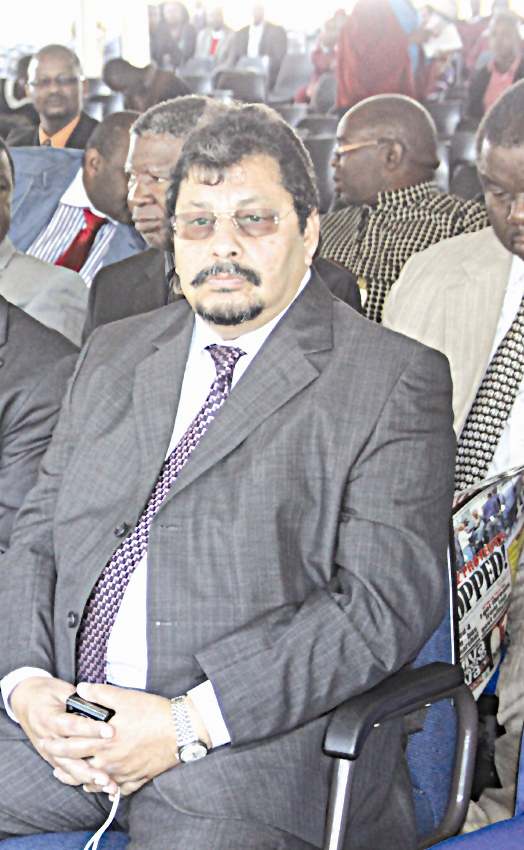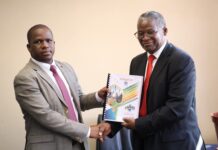Swazipharm director Kareem Ashraff has rejected claims that he funded the Public Accounts Committee (PAC)’s contentious trip to India.
Ashraff said he was appalled by the ongoing efforts to link him to the trip, describing the allegations that he financed the trip as part of a coordinated misinformation campaign aimed at discrediting him and his pharmaceutical business.
“I want to make it categorically clear that I did not fund that trip and I do not know anything about it,” he said, amid growing concern about the secretive nature of the mission.
The PAC travelled to India about two months ago to, according to its chairman Mhlangatane Member of Parliament and Deputy Speaker Madala Mhlanga, investigate the sourcing of medical drugs.
The mission however, has since raised serious concerns about transparency, diplomatic protocol and possible unauthorised travel.
“I’ve only learnt about it (the trip) through the media like everyone else and have also heard the rumours doing the rounds, but I believe that is still part of the systematic misinformation being spewed about me and my businesses to associate me with questionable behaviour, which I will not allow,” Ashraff stated.
Indian High Commissioner to Eswatini Ram Prasad, recently expressed surprise that the committee had undertaken a mission in his country without notifying the High Commission or requesting any support.
“We have only learnt about this trip through the papers. We were not contacted and no communication was received from the government of Eswatini or Parliament. This is confusing, considering the existing health cooperation agreement between India and Eswatini,” Prasad said.
According to the Auditor General Timothy Matsebula, the trip was funded by an international donor who wished to remain anonymous.
Ashraff however, said he found it quite telling that the PAC still refuses to disclose the sponsor of the trip, despite the growing demand for transparency.
“The secrecy raises many questions about accountability. The PAC is a public institution therefore, the citizens deserve to know who is funding their international missions,” he stated.
“Unfortunately, some MPs play politics of the stomach, pretending to seek answers when they know very well what the real issues are,” he added.
Also Read: His Majesty’s Correctional Services celebrates 17th May Day
Ashraff took aim at politicians he accuses of politicising a procurement crisis, stating that their actions have contributed to the suffering of ordinary citizens.
“This is a procurement issue, but politicians have chosen to politicise it therefore, people are suffering in public hospitals. And now, some of us are having our names dragged through the mud as scapegoats in a crisis they helped create,” he claimed.
Efforts to obtain comment from PAC Chairman Madala Mhlanga proved futile, as he did not respond to multiple phone calls and had yet to reply to a message sent to him last month.
House of Assembly Speaker Jabulani Mabuza also referred all enquiries about the matter to Mhlanga.
“Kindly contact the deputy speaker who also chairs the PAC,” Mabuza said briefly in response.
The trip even sparked an explosive exchange between Mhlanga and Mbabane East MP Welcome Dlamini during the House of Assembly’s debate on the PAC’s investigative and Site visits report, of which the India trip formed a key part.
Dlamini, questioning the accuracy of the report, disputed that the committee had met with India’s national drug regulator, stating that his research indicated the referenced body was not the national authority recognised by the World Health Organisation.
“They say they spoke to the Indian drug regulator, the food and drug agency.
But I found that the country’s national regulator is the Central Drugs Standard Control Organisation, not the FDA. The one they refer to operates under a state government,” said Dlamini during the heated parliamentary session.
He also queried the identity of the trip’s funder and questioned the credibility of one of the supposed drug manufacturers the committee met in India, which he claimed was, in fact, a conveyor belt company.
Mhlanga responded by accusing Dlamini of relying on incorrect information and insisted that the committee had visited legitimate pharmaceutical laboratories. He still declined to disclose the sponsor of the trip, citing ethical concerns.
The tension between the two MPs escalated, with Dlamini telling Mhlanga not to threaten him.
“Don’t threaten me. We can go there if he wants to go there, I’m not afraid of anything,” said the Mbabane East MP.
Mhlanga, on the other hand, urged that the debates be grounded in verified facts and reiterated his role as the committee chair, warning against backdoor tactics.
Speaker of the House Jabulani Mabuza eventually intervened, encouraging the PAC chairman to clarify issues raised by Dlamini rather than becoming emotional.
Minister of Tinkhundla Administration Sikhumbuzo Dlamini also stepped in, urging Mhlanga to accept parliamentary scrutiny as part of robust debate.
Ashraff, for his part, said he is prepared to defend his reputation and the integrity of his business in any forum necessary.
“I will speak out because this is no longer just about me. It is about whether there is genuine political will to resolve the country’s health crisis, or whether politicians will continue playing to the gallery for cheap political points,” he stated.








